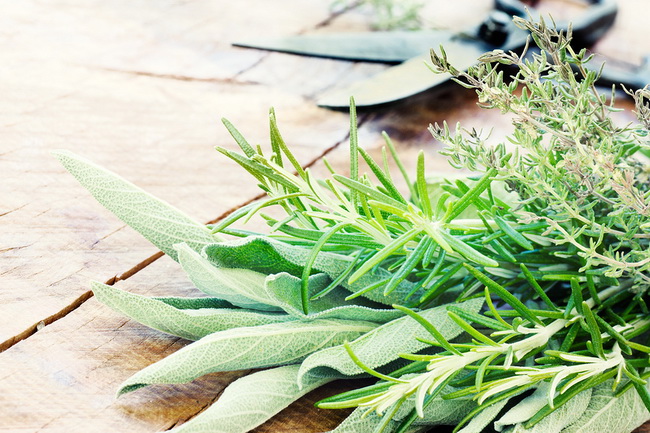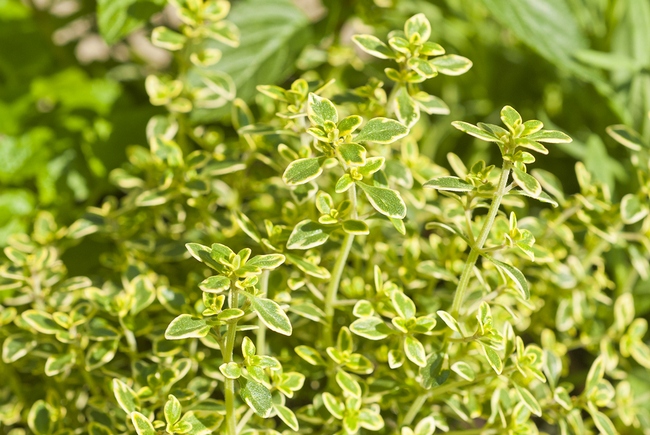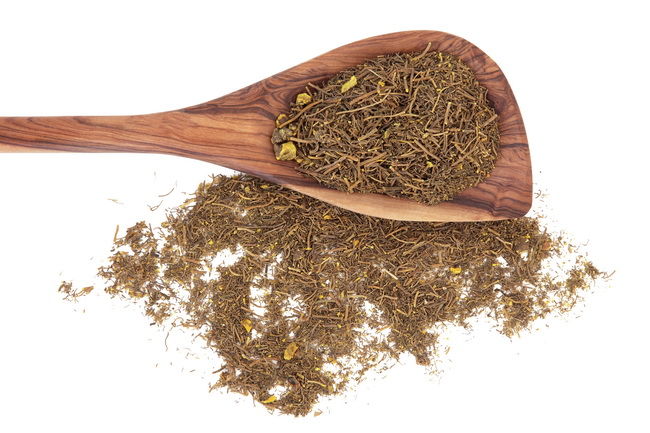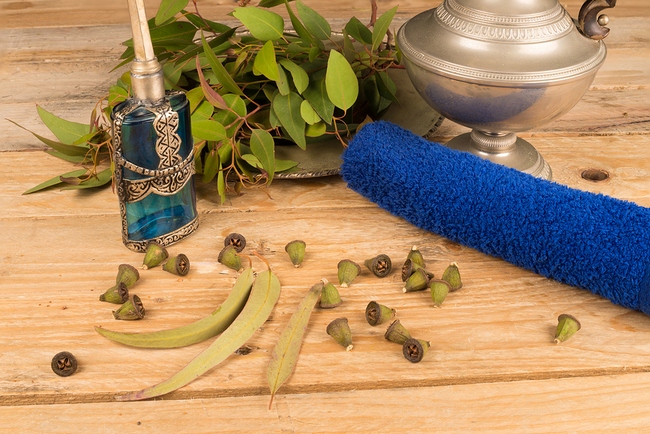- Make It Yourself Lavender Heart-Shaped Bath Bombs!
- 20 Things You Never Knew About “Down There”
- 12 Best Foods For Those Suffering From Arthritis Pain
- 12 Personal Hygiene Mistakes Almost Everyone Makes (Mom Never Told You About #4!)
- 15 Medicinal Plants And Herbs From The Cherokee People
- 12 Mind-Blowing Benefits Of Drinking Coconut Water During Pregnancy
- 12 Outstanding Winter Foods That Won’t Fatten You Up Like A Christmas Turkey
12 Of The Best Herbal Antibiotics On The Planet

Photo credit: bigstock.com
Herbal antibiotics have been used for centuries by herbalists for everything from fighting disease, speeding up wound healing, fighting off colds and flus, treating respiratory problems, and fighting infections. Many of these herbs have been put on the back shelf since the appearance of synthetic antibiotics. Today, however, with more and more people looking to return to more natural ways of regaining their health, herbs are making a comeback.
This is an important movement since the overuse of synthetic antibiotics and antibacterial products have made bacteria and pathogens that are extremely resistant to most antibiotics.
By supporting our immune systems with a more natural diet and healthy lifestyle, we can eliminate the need for many antibiotics to begin with. However, when you find that you could use a good antibiotic, there is plenty of natural ones right from Mother Nature herself.
You should note that not all bacteria are harmful. Our guts are loaded with bacteria that are absolutely necessary for a healthy immune system and bodily function. If you are taking any type of prescription medication or if you have any existing health conditions, you should always consult your doctor before beginning any herbal treatment. Although most herbs are well tolerated by just about everyone, there are exceptions, so use common sense and speak to your doctor about possible drug interactions.
1. Sage
Sage has been used since ancient times for healing. It contains plenty of minerals such as calcium and potassium. Sage essential oils contain powerful compounds such as camphor, borneol, and cineole. During the Middle Ages it was thought that sage could prolong life and expel demons. We’re not so sure about that last one, but extending your life just might be true. Sage has anti-inflammatory, anti-bacterial, anti-fungal, and antiseptic compounds. It’s known to stop bleeding, help women get through menopause, and promote sweating, which removes toxins from the body. You can drink sage tea, or use it as a poultice externally for wounds.
2. Raw Organic Honey
Honey has been used for its therapeutic properties for hundreds, if not thousands of years. The Ancient Egyptians used it as a type of embalming fluid and as a dressing for wounds. Holistic practitioners often recommend it as a general good-for-what-ails-you remedy. Lab studies show that honey hampers the growth of pathogens such as salmonella, and E. coli. Be certain that you are using real, raw, organic honey, not the honey from your local supermarket, which has been proven in numerous tests to be little more than glorified sugar. NOTE: Never give honey to an infant under 1 year of age as it contains botulism, which can easily kill an infant that does not have a fully developed gastrointestinal tract.
SEE ALSO: Super Healthy Completely Natural Honey Based Antibiotic Potion
3. Tea Tree Oil
This tree, native to Australia, is the perfect antibiotics to kill fungal infections, viruses, and bacteria on contact. Think of tea tree oil as a milder form of rubber alcohol. It works really well in fighting things such has athlete’s foot fungus, toenail fungus, and skin infections. Mixed with a good carrier oil such as almond, grapeseed, or olive oil, it can fight psoriasis, eczema, and even acne.
Continue to Page 2

Photo credit: bigstock.com
4. Thyme
Yes, thyme. This is a powerful antibiotic that has been used since ancient times. Thyme is often used for those suffering from arthritis, sore throats, whopping cough or persistent coughs, and bronchitis. Hippocrates even used thyme in his practice for respiratory issues. This popular herb contains compounds known as biocides, which destroy pathogens in the body. Thyme has strong antimicrobial compounds that scientists at the University of Manitoba, Canada, say can reduce bacterial resistance to other commonly used antibiotics.
5. Licorice
This powerful anti-inflammatory, antimicrobial, antifungal, and antibacterial herb can be used to help stop hepatitis, ulcers in the intestines, viral infections such as influenza, and improve the digestion. Licorice also stimulates the immune system and works very well when used in combination with other herbs. Herbalists believe that using licorice root, rather than extracts, tend to work better and have fewer side effects. Licorice root can cause some people to have increased blood pressure and water retention. Licorice should be used with caution by those with hypertension. Consult your doctor if you are taking any prescription drugs before using licorice as a supplement.
6. Ginger
Well known for its ability to stop nausea in its tracks, ginger works best when it is consumed raw. Ginger can stop diarrhea, and has powerful anti-fungal compounds that can help clear the body of candida infestations when consumed regularly. When consumed in moderate quantities, ginger is super safe, although it can interact with other prescription drugs so be sure to check with your doctor before using. Read more about ginger benefits.
Continue to Page 3

Photo credit: bigstock.com
7. Garlic
Like ginger, garlic is also at its most powerful when it’s consumed raw. Garlic is not only a natural antibiotic; it works to strengthen the immune system. One of the best things about using garlic as an antibiotic is that your body will never develop a resistance to it, nor does the bacteria you are trying to kill. This strong tasting herb won’t damage the bacteria in your digestive tract either. Most herbalists recommend taking one or two organic cloves of garlic, crushing them slightly, and then swallowing them whole. For some people, raw garlic can cause stomach upset, so start with small cloves until your body becomes more accustomed to it. Read how to take garlic medicinally.
8. Goldenseal
This is such a popular herb that it has been harvested nearly to the point of extinction. This anti-inflammatory herb helps to stop liver and digestive problems. It also is known to fight more than 19 types of bacteria. Goldenseal is extremely powerful, so if you plan to take it regularly, be sure to take breaks from it now and again to give your body a chance to rest.
9. Aloe Vera
Most people know about applying aloe vera gel to wounds or burns to help them heal faster, and this is due to aloe vera’s powerful antibiotic compounds. Although aloe vera can be used for short periods internally to stop rashes, inflammation, digestive issues and constipation. Aloe vera works wonders when it comes to skin infections, skin inflammation, boils, eczema, and other types of skin issues. Aloe vera is super effective against herpes simplex virus types 1 and 2, staphylococcus aureus, and pseudomonas aeruginosa.
Continue to Page 4

Photo credit: bigstock.com
10. Echinacea
This is perhaps one of the best known anti-viral herbs around. At the very beginning of a cold, flu, or sore throat, you should immediately try taking Echinacea, rather than see the doctor and get a dose of antibiotics that won’t work anyway. Echinacea can also help persons who are suffering from swollen lymph glands, sunburn, urinary tract infections, hay fever, ear infections, and enlarged prostate glands. This is an ancient flowering herb has been used successfully by Native American tribes for centuries. It is very effective against tuberculosis, abnormal cells, as well as staphylococcus aureus.
11. Eucalyptus
Eucalyptus is another ancient remedy to help stop respiratory problems. It’s a natural antibiotic, antiseptic, and antibacterial. Its oil is cineole, and it is used even today in many over the counter cough and cold remedies. Inhaled eucalyptus oil can treat common respiratory issues such as bronchitis and asthma. This powerful oil has antibacterial effects on pathogens and bacteria in the respiratory tract. Eucalyptus also stimulates the immune system.
12. Juniper
Juniper oil has been used since at least the Middle Ages where people thought it would fend off the plague. Juniper does have antibiotic qualities so our ancestors may have been correct. Juniper oil is often used to treat inflammation, improve memory, urinary tract infections, arthritis, gout, and respiratory problems. Sometimes called cedar or cedarwood oil, most juniper oils you find come from the roots of several different types of conifers, cypress, and juniper trees. Juniper oil is a natural antibiotic, antifungal, and insecticidal compounds. This oil is best used externally and in aromatherapy, such as through a room diffuser, as it can be toxic when consumed in high enough amounts.
References:

































